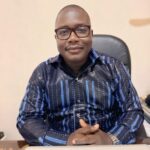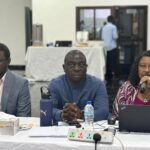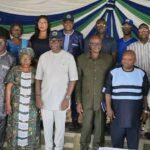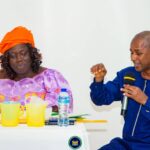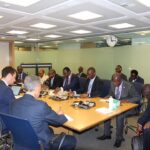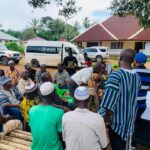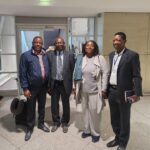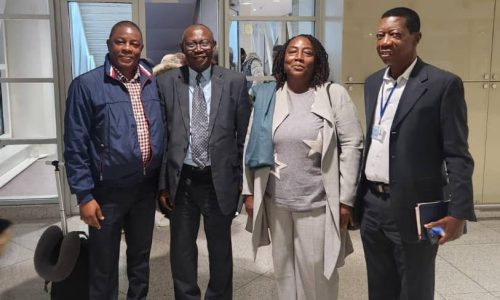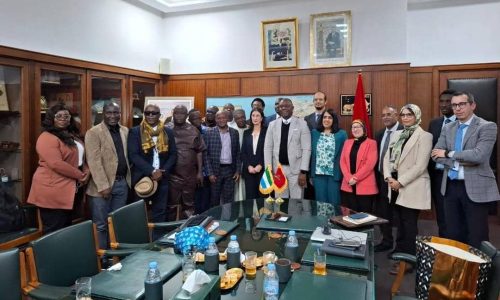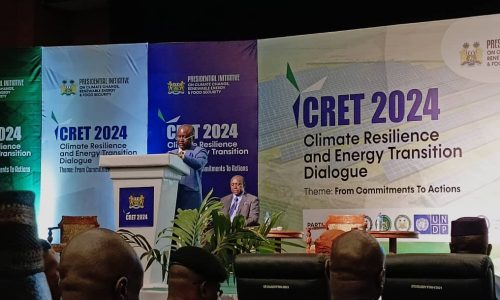DOES SIERRA LEONE DEMOCRACY DESERVE TO SURVIVE? by Mahmud Tim Kargbo In my customarily elegant and pessimistic essay, “the bad news goes on and on.” That is as it should be, for I wrote that first in The Revolt of the Elites. There, I argued that elites have used their material and cultural power to heap contempt upon the “mainstream of Sierra Leone life.” As elites detach themselves from their fellow citizens, they exacerbate the crisis of Sierra Leone democracy, which shows no signs of letting up. Resolving the crisis of Sierra Leone democracy requires a populist campaign against elites. “Populism is the authentic voice of democracy” because it realises democracy’s moral vision in a way elite counterfeit visions for democracy do not. As l suggest in “Does Democracy Deserve to Survive?”, democracy does not deserve to survive if it is about best promoting ever-greater economic growth, pluralism, or diversity. These moral visions of democracy are not worth defending. What is worth defending is one that embodies the ethically demanding standard of self-limitation found in the best traditions of populist politics, from agrarian and syndicalist movements to the early civil rights movement. Some, however, may disagree with my view by contending l am too hopeful for Sierra Leone democracy; others will accuse me of sounding “utopian.” For many, Sierra Leone is lost: we are “far beyond saving ourselves,” and our “ship has sailed over the horizon.” In warning against impending totalitarianism and through characteristic closing invocation l pitched myself as both more realistic and radical. As we shall see, others allow the tensions in their own thinking to distract from realism and radicalism, from which we can still learn. But first, we must clarify a critical aspect of my analysis. Others concentrate on my themes of class and cultural divisions. Yet they don’t discuss the pursuit of human excellence, or nobility, which orients the moral vision behind my political and social critique. The allusion in the title of Revolt of the Elites to Revolt of the Masses does not just speak to class and cultural divides, but to nobility and human excellence: this is the real concern. For others, achieving nobility requires fostering common standards for excellence. I agree, quoting Walt Whitman: democracy’s test is whether it can produce “an aggregate of heroes, characters, exploits, sufferings, prosperity or misfortune, glory or disgrace, common to all, typical of all.” Others and myself warn that this vision is being rejected. Yet l flips the argument on its head. Whereas others recounted the ascent of “mass man,“ who surrenders the search for excellence, l recounts the ascent of elites who surrender the search for excellence. For elites, the talk of heroes, exploits, glory, and disgrace is “suspect,” even “frightening.” The search for common standards and a shared vision of noble heroes threaten the egalitarian quest for diversity. Consumed with a “monomania” for tribalism, denouncing common standards as “institutional tribalism” standing in the way of diversity, elites replace those common standards with the double standards of tribal preferences. In so doing, they turn swathes of the population into “second-class citizens.” By scorning common standards, democracy is replaced with the “hierarchy of privilege.” Democracy ceases to exist. In others, scorn for common standards is the chief characteristic of barbarism. In my view, elites willfully abandon common standards; on right minded nationals terms, these elites are fundamentally barbaric. As right minded nationals pessimistic hero would say: “the barbarians are not waiting beyond the frontiers; they have already been governing us for quite some time.” This bleak assessment shows that harsh realism, not utopianism, lies at the forefront of my argument. Is a remedy possible? From my view, democracy deserves to survive by the standard it sets for human excellence. It stands or falls by whether it can achieve what is noble. To that end, Revolt of the Elites calls for a “revisionist interpretation of Sierra Leone history,” which looks to explicitly non-liberal sources that could support individuals in their efforts to live up to noble and demanding ideals. One of my most important works, The True and Only Heaven: Progress and its Critics, was a study of various populist movements that sought to counter the “desiccation” of heroism. I hope, expressed in my article denouement, was to find “moral inspiration in the popular radicalism of the past.” Others will show little interest in my more radical side. This is curious, because they advance dire assessments of Sierra Leone politics. Since they appear to agree that Sierra Leone constitutionalism is self-destructive by its own logic, so that we cannot place our trust in its principles or practices to fight off the barbarians, we get the impression that they point the way toward great populist radicals—even revolutionaries. Nevertheless, they often pull their punches, and close off the road toward any populism that might be in tension with contemporary Sierra Leone constitutionalism. They did the same in this essay. “Pro-Samura Kamara orators,” I write, “have spent the last year’s denouncing and attempting to delegitimise Constitutional processes and institutions, such as the courts, and helped create the conditions for the riots. This is not a populism that I would have condoned.” Others pivot here exemplifies the tension in their own thinking. Have things gotten so bad that Sierra Leone democracy is finished? Must we then abandon the Sierra Leone ship of state to build new politics and practices—even subverting the venerable processes and institutions? Or should we continue to place our reverence and piety in the old ship of state, the old regime and its venerable processes and institutions—even to the point of ostracising its sceptics and revisionists? All the energy in the thinking of these nationals point towards the former. When pushed, however, they remain pious citizens of the Sierra Leone regime, emphasising the latter. They first with radicalism, but shy away from it whenever it becomes too controversial. Are they in the last analysis loyal partisan for Sierra Leone constitutionalism? Or are they simply afraid of sounding


